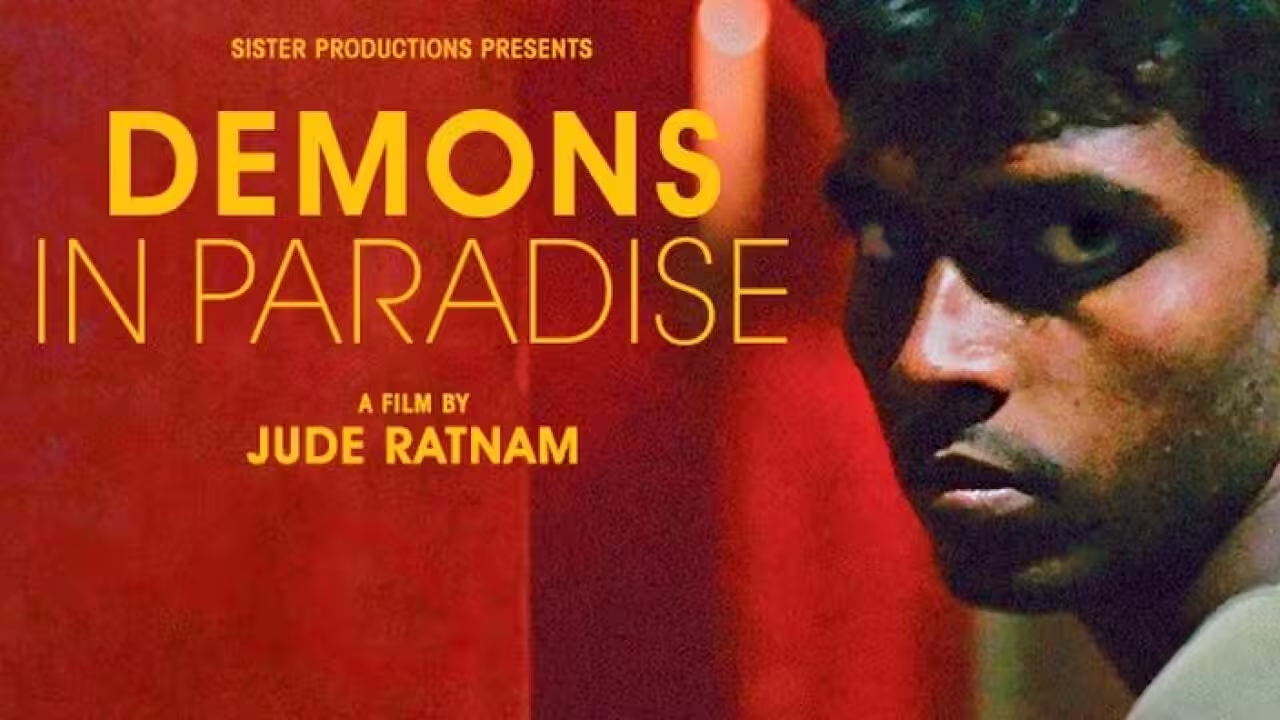I watched Demons in Paradise with a heavy heart, not as a critic or a civilian, but as someone who once wore the uniform of the Liberation Tigers of Tamil Eelam (LTTE) — a child soldier trained to kill and conditioned to believe in the righteousness of our cause. I was barely fifteen when I first held a weapon, and like thousands of others, I was told that martyrdom was glory and that anyone who challenged the LTTE’s grip on Tamil liberation was a traitor.
Jude Ratnam’s documentary pierced through layers of memory I had long buried. For the first time, I saw our story told not through glorified images of Tiger heroism, but through the raw voices of those we silenced. The film doesn’t hide behind symbolism or cinematic cleverness. It’s a quiet, slow burn that walks you through the kind of agony we inflicted on our own—on fellow Tamils. TELO, EPRLF, PLOT, EROS, ENTLF—names I had once learned to associate with betrayal—are given faces, voices, and graves in this film.
I remember when word spread that hundreds of TELO cadres had been executed by the LTTE in just a few days. We were told they were traitors working with India, with the state, with anyone but the cause. But what cause was that, really? Jude’s film forces us to ask that. When did our revolution turn into an internal purge? When did liberation mean domination?
One scene in the documentary hit me especially hard—an aging former militant speaks with calm regret around a campfire. He recounts how his comrades were tortured, necklaced, or burned alive by other Tamils—by us. I have seen those methods firsthand. I have heard the screams. And back then, I was numb. We had to be. To question the violence was to question the LTTE, and to question the LTTE was to court death.
Jude’s narration doesn’t hide his own fear either. He was a child when his family fled Colombo during the anti-Tamil pogroms. His mother warned him not to speak Tamil on the train, afraid it could get them killed. Even now, as a father, he flinches when his own son speaks Tamil in public. That generational trauma, the deep shame and confusion around our identity, it seeps into every frame of the film.
What moved me most was that Jude dared to tell this story at all. In our community, you don’t criticize the Tigers. You don’t speak of the mass killings of rival Tamil groups. You don’t humanize the so-called traitors. You certainly don’t screen this kind of film in Jaffna. And yet, here he is, refusing to let silence win. He breaks the LTTE’s monopoly over Tamil martyrdom and tells a story that even I, as a former child soldier turned defense analyst, struggled to tell for decades.
But the film is not perfect. It barely touches on the role of the Sri Lankan state—whose hands are drenched in Tamil blood. The bombings, the disappearances, the final massacre at Mullivaikkal—those crimes are part of our story too. And yet, Jude chooses to turn the camera inward, to focus on the demons within. I understand that choice. Sometimes the most painful truths are not about our enemies, but about what we became while fighting them.
Watching Demons in Paradise as Kagusthan Ariaratnam was like walking through the graves I once helped dig. I saw the lies we were fed, the people we erased, and the truths we buried. But I also saw a path forward—a painful, necessary reckoning with our own history. This film doesn’t give easy answers. It offers something far more powerful: the courage to question the myth and to reclaim a more honest Tamil identity—one that is no longer bound by fear or silence.
You can watch Demons in Paradise by clicking HERE

